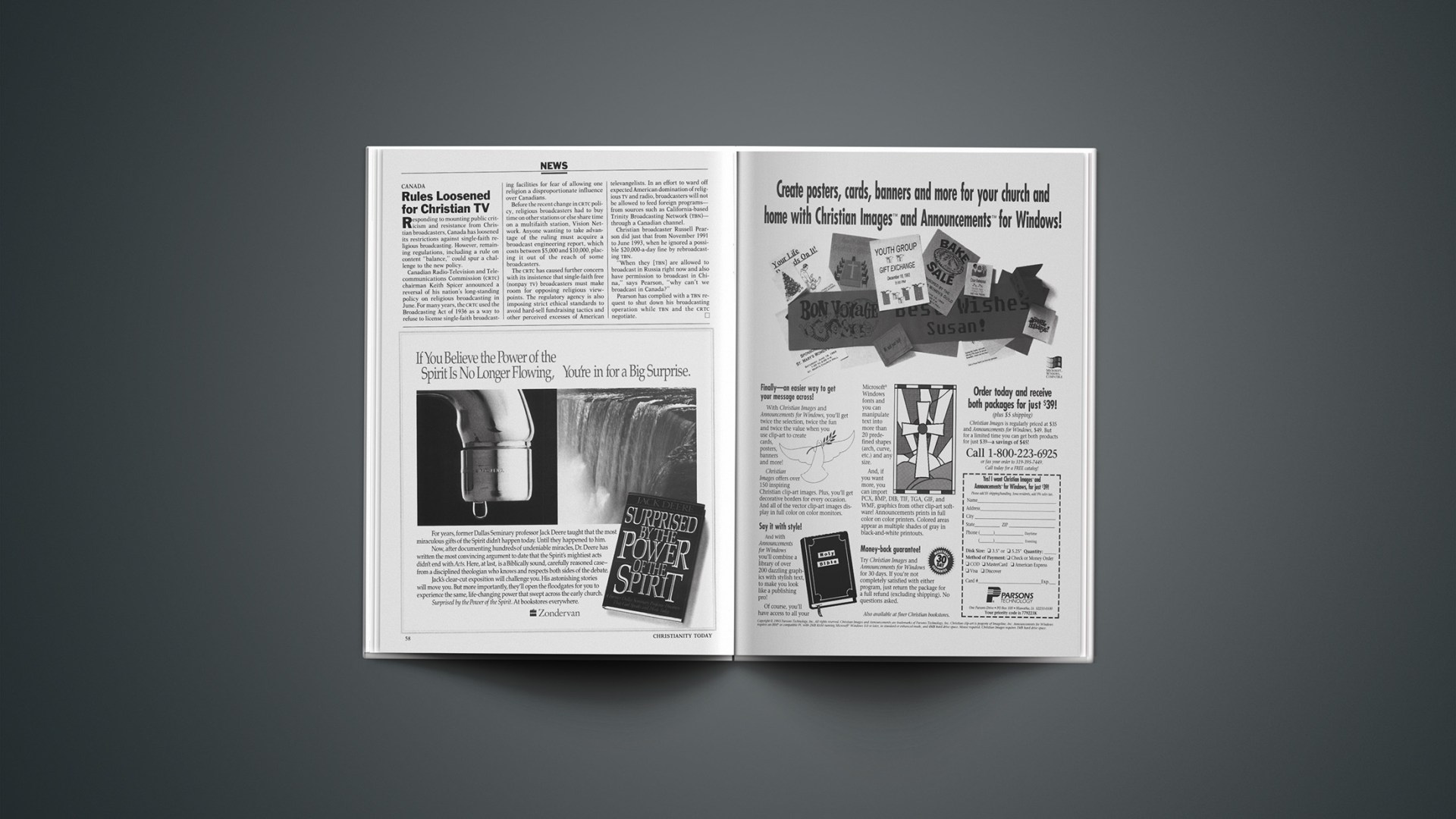Responding to mounting public criticism and resistance from Christian broadcasters, Canada has loosened its restrictions against single-faith religious broadcasting. However, remaining regulations, including a rule on content “balance,” could spur a challenge to the new policy.
Canadian Radio-Television and Telecommunications Commission (CRTC) chairman Keith Spicer announced a reversal of his nation’s long-standing policy on religious broadcasting in June. For many years, the CRTC used the Broadcasting Act of 1936 as a way to refuse to license single-faith broadcasting facilities for fear of allowing one religion a disproportionate influence over Canadians.
Before the recent change in CRTC policy, religious broadcasters had to buy time on other stations or else share time on a multifaith station, Vision Network. Anyone wanting to take advantage of the ruling must acquire a broadcast engineering report, which costs between $5,000 and $10,000, placing it out of the reach of some broadcasters.
The CRTC has caused further concern with its insistence that single-faith free (nonpay TV) broadcasters must make room for opposing religious viewpoints. The regulatory agency is also imposing strict ethical standards to avoid hard-sell fundraising tactics and other perceived excesses of American televangelists. In an effort to ward off expected American domination of religious TV and radio, broadcasters will not be allowed to feed foreign programs—from sources such as California-based Trinity Broadcasting Network (TBN)—through a Canadian channel.
Christian broadcaster Russell Pearson did just that from November 1991 to June 1993, when he ignored a possible $20,000-a-day fine by rebroadcasting TBN.
“When they [TBN] are allowed to broadcast in Russia right now and also have permission to broadcast in China,” says Pearson, “why can’t we broadcast in Canada?”
Pearson has complied with a TBN request to shut down his broadcasting operation while TBN and the CRTC negotiate.










